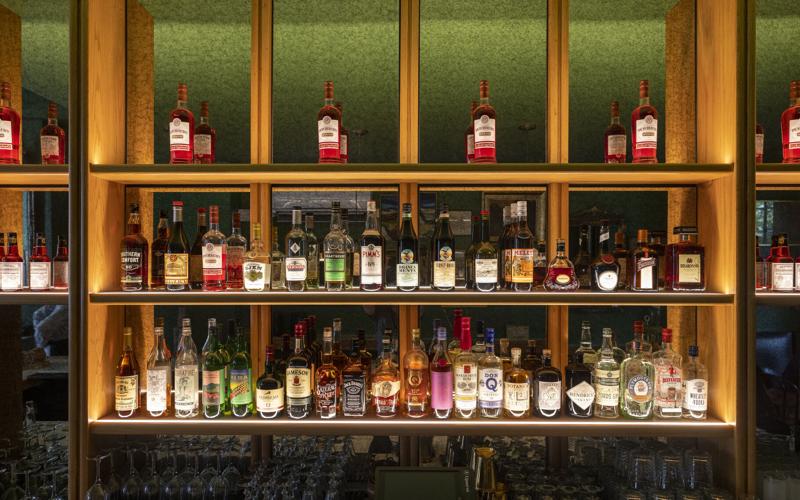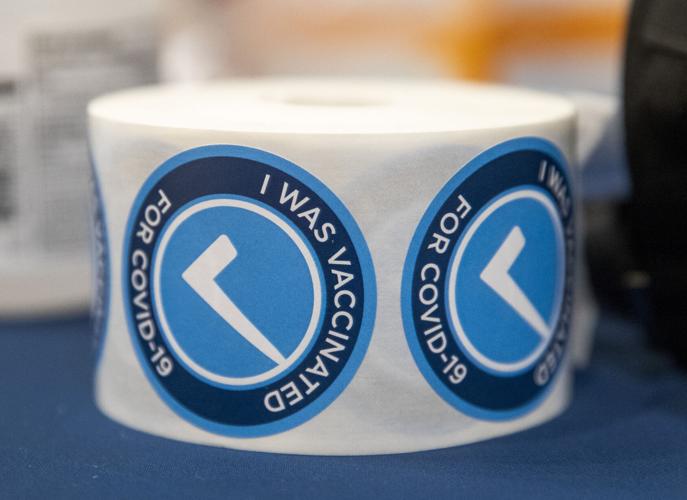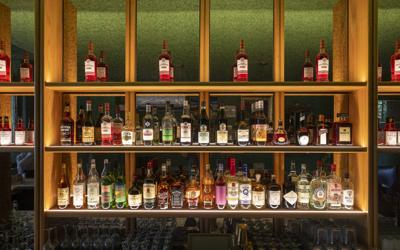Last call will once again be a thing of the past in New Orleans starting Friday under the latest loosening of coronavirus restrictions announced by Mayor LaToya Cantrell's administration.
City Hall on Wednesday said that New Orleans' ban on selling alcohol after 1 a.m. would end this weekend along with a host of other coronavirus restrictions, including the ban on second lines and most capacity restrictions on events.
Second line parades and 24/7 alcohol sales are coming back to New Orleans this weekend under eased COVID-19 rules.
Restaurants will also be able to put their tables back in their pre-pandemic places, ending the socially-distanced dining that limited the number of patrons and made it hard for many smaller restaurants to make money.
New Orleans has been on a steady march towards normalcy in recent months. Falling coronavirus cases and rising vaccinations have led Cantrell and her public-health advisors to first ease gathering limits, then end mask mandates and bans on dancing.
But the latest changes, particularly the return of second lines and the end to last call in a city known for some bars that famously never close, seemed a key milestone.

People sit outside of the Ms. Mae's bar in New Orleans, Friday, March 12, 2021. It was the first night under the city's modified, loosened Phase 3 restrictions. (Photo by Sophia Germer, NOLA.com, The Times-Picayune | The New Orleans Advocate)
“I hate to use the word normal, because we know nothing is really normal now,” said Kathy Anderson, proprietor of the Parkview Tavern in Mid-City. “But whatever this is feels a whole lot better than what it was.”
The new rules will go into effect on Friday at 6 a.m.
Bar owners and others in the hospitality industry have been clamoring for the end of the ban on early morning alcohol sales — which applied to restaurants and retailers as well as bars — with many arguing they bore little connection to the spread of the coronavirus. The continuation of those restrictions even after others have eased also raised concerns that last call would become a permanent fixture in the post-pandemic world.
Louisiana health officials have tried enticing people to get the COVID vaccine with free crawfish, burritos, drive-thru concerts and even alco…
As other pieces of the city's hospitality economy have come back, and restaurants have grown evermore busy, the last call mandate was having a greater effect on bars that cater to other service industry workers.
Benji Lee, who runs the Saint, a late-night dive off Magazine Street, said the end of last call would have an immediate impact on his business and the livelihoods of his staff.
He said the Saint would typically do 75% of its business after 1 a.m. in the days before the coronavirus restrictions.

Vaccinated people receive a sticker after receiving a vaccine at the COVID-19 vaccination site inside of Lakeside Shopping Center in Metairie, La., Friday, May 21, 2021. Lakeside, in partnership with Jefferson Parish and Ochsner Health, opened the COVID-19 vaccination site on Monday, in the former Naturalizer space. By the end of the day Thursday, 266 people received a single dose of the Pfizer vaccine in the location. (Photo by Sophia Germer, NOLA.com, The Times-Picayune | The New Orleans Advocate)
“The closing time was brutal, because you’d only start to get busy at 12:15 a.m. and then you’d have to turn on the lights 45 minutes later and send people home ,” he said. “It was soul crushing for the bartenders who were waiting all night for that business to have to shut it down.”
Bars had been among the businesses most impacted by the city's rules, which have been more stringent than those throughout the rest of Louisiana for most of the pandemic.
Recent weeks have seen restrictions loosened at relatively rapid pace, however. Cantrell and other city officials have said the end to face coverings and other rules were a reward for a community that worked together to slow the spread of COVID-19. And with vaccines widely available, health department director Dr. Jennifer Avegno has said that it's now up to unvaccinated people to either get the shot or leave themselves at risk.
Dr. Anthony Fauci and Dr. Cameron Webb talk about coronavirus and COVID vaccines with reporters Emily Woodruff and Blake Paterson.
Roughly 46.5% of New Orleans' population has received at least their first dose of the vaccine, a number that trails the national rate but puts it as the second most-vaccinated parish in Louisiana. And the city recorded fewer than 18 new cases per day over the past week, among the lowest increase since the start of the pandemic.
The new rules will also bring back second lines, though they will still need to get permits from the city. Those permits were required before the pandemic.
In general, gatherings will still be capped at 250 people indoors or 500 outdoors. But if masks are required or all individuals are required to provide proof of vaccination or a negative coronavirus test from the prior 72 hours, organizers will be allowed to return to 100% of their venue's capacity limit.
If those requirements are not met, indoor events will be capped at 50% of a venue's occupancy and outdoor events can only go up to 75% of a venue's occupancy.
Gov. John Bel Edwards announced Tuesday he's ditching nearly every remaining coronavirus restriction in Louisiana and lifting a statewide mand…
The end of social distancing measures between tables means more flexibility for seating and capacity at restaurants and bars.
The six-foot requirement set the true limit of how many tables could be seated at once, said chef John Harris, owner of the Uptown bistro Lilette and its more casual offshoot Bouligny Tavern.
“No one’s tables were six feet apart pre-pandemic, so you can do the math,” Harris said. “This means there’s one less thing to manage, don’t have to worry about placement as much.”
LCMC Health plans to close its mass vaccination site at the Ernest N. Morial Convention Center later this week, ending nearly three months of …











